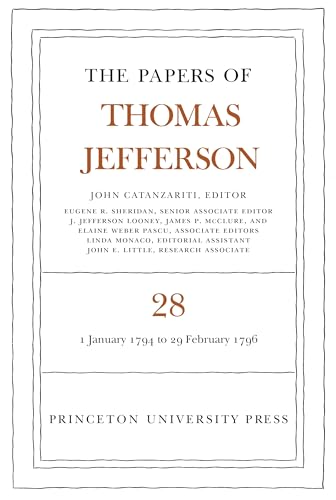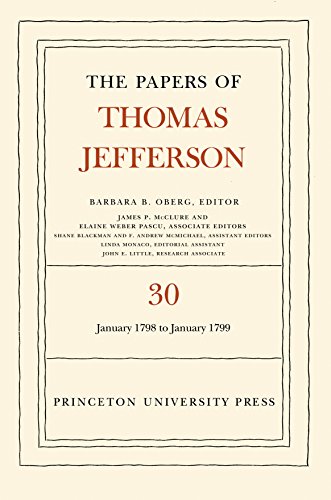Thomas Jefferson Lyman Henry Butterfield (2 results)
FeedbackSearch filters
Product Type
- All Product Types
- Books (2)
- Magazines & Periodicals (No further results match this refinement)
- Comics (No further results match this refinement)
- Sheet Music (No further results match this refinement)
- Art, Prints & Posters (No further results match this refinement)
- Photographs (No further results match this refinement)
- Maps (No further results match this refinement)
- Manuscripts & Paper Collectibles (No further results match this refinement)
Condition
- All Conditions
- New (No further results match this refinement)
- Used (2)
Binding
- All Bindings
- Hardcover (2)
- Softcover (No further results match this refinement)
Collectible Attributes
- First Edition (No further results match this refinement)
- Signed (1)
- Dust Jacket (No further results match this refinement)
- Seller-Supplied Images (No further results match this refinement)
- Not Print on Demand (2)
Free Shipping
- Free Shipping to United Kingdom (No further results match this refinement)
Seller Rating
-
The Papers of Thomas Jefferson - Volume 28 - January 1794 To February 1796
Published by Princeton University Press, 2000
ISBN 10: 0691047804 ISBN 13: 9780691047805
Seller: Book Haven, Wellington, WLG, New Zealand
Hardback. Condition: Very good. This volume brings Jefferson into retirement after his tenure as Secretary of State and returns him to private life at Monticello. He professes his desire to be free of public responsibilities and live the life of a farmer, spending his time tending to his estates. Turning his attention to the improvement of his farms and finances, Jefferson surveys his fields, experiments with crop rotation, and establishes a nailery on Mulberry Row. He embarks upon an ambitious plan to renovate Monticello, a long-term task that will eventually transform his residence.Although Jefferson is distant from Philadelphia, the seat of the federal government, he is not completely divorced from the politics of the day. His friends, especially James Madison, with whom he exchanges almost sixty letters in the period covered by this volume, keep him fully informed about the efforts of Republican county and town meetings, the Virginia General Assembly, Congress, and the press to counter Federalist policies. An emerging Republican opposition is taking shape in response to the Jay Treaty, and Jefferson is keenly interested in its progress. Although in June, 1795, he claims to have 'proscribed newspapers' from Monticello, in fact he never entirely cuts himself off from the world. At the end of that year, he takes pains to ensure that he will have two full sets of Benjamin Franklin Bache's Aurora, the influential Republican newspaper, one set to be held in Philadelphia for binding and one to be sent directly to Heavy - extra postage will apply; Ex Library 742 pages.
-
The Papers of Thomas Jefferson - Volume 30 - January 1798 To January 1799
Published by Princeton University Press 2003 Hardback, 2003
ISBN 10: 0691094985 ISBN 13: 9780691094984
Seller: Book Haven, Wellington, WLG, New Zealand
Signed
Condition: Very Good. During the thirteen months covered by this volume, Thomas Jefferson spent more than half of his time in Philadelphia serving as vice president under President John Adams and presiding over a Senate that was dominated by his political opponents, the Federalists. Debates in Congress took place against a backdrop of bitter partisan rivalry, characterized most famously by the near-brawl on the floor of the House between Matthew Lyon and Roger Griswold. Congress and the nation waited, in a 'state of extraordinary suspense,' for dispatches from the American envoys in France. When the accounts of the XYZ Affair became public, the nation prepared for war. Two days after the Alien Friends Act was signed into law Jefferson left for Monticello, stopping at Montpelier to convey the latest news to James Madison. Disheartened and frustrated by the Alien and Sedition Acts, Jefferson penned the famous resolutions adopted in November by the Kentucky legislature. He kept his authorship a secret, however, seeking to avoid any appearance of 'rashness' by Republicans. This endeavor reflected his struggle to make sense of the political direction of the nation in times he could neither comprehend nor accept.Jefferson continued to engage in scientific pursuits and fulfill his role as a promoter of American science and learning. He was reelected to the presidency of the American Philosophical Society, to which he presented his paper on the moldboard plow. He corresponded on American Indian languages, astronomy, and the Anglo-Saxon language. He longed for Monticello, and, as Jefferson had learned before, his property fell into neglect when he was away on public business. Renovations to the house slowed, supplies for the nailery were disrupted, and he had to arrange for the sale of his crops through intermediaries. With the prices of wheat low, he was drawn back into financial dependence on tobacco. Ex Lib; heavy - extra postage will apply 812 pages.



